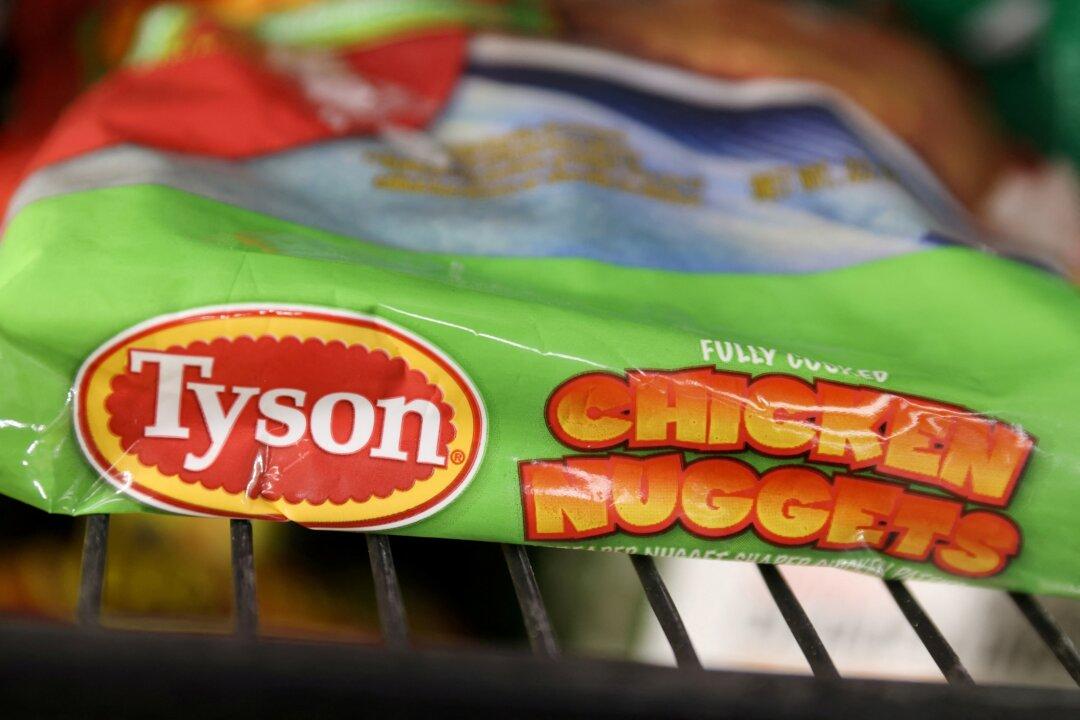Tyson Foods Inc. shares plunged 16 percent to a three-year low on Monday as the U.S. meatpacker posted a surprise second-quarter loss and cut its full-year revenue forecast amid slowing consumer demand.
The weaker-than-expected results indicate cash-strapped shoppers are cutting back on meat spending in a high-inflation environment while a shrinking cattle herd forces Tyson to pay more for livestock, eroding margins. Tyson also continues to struggle with increased expenses for staples like animal feed.





